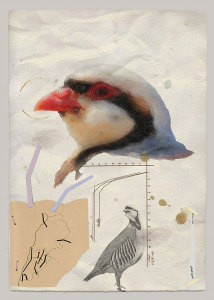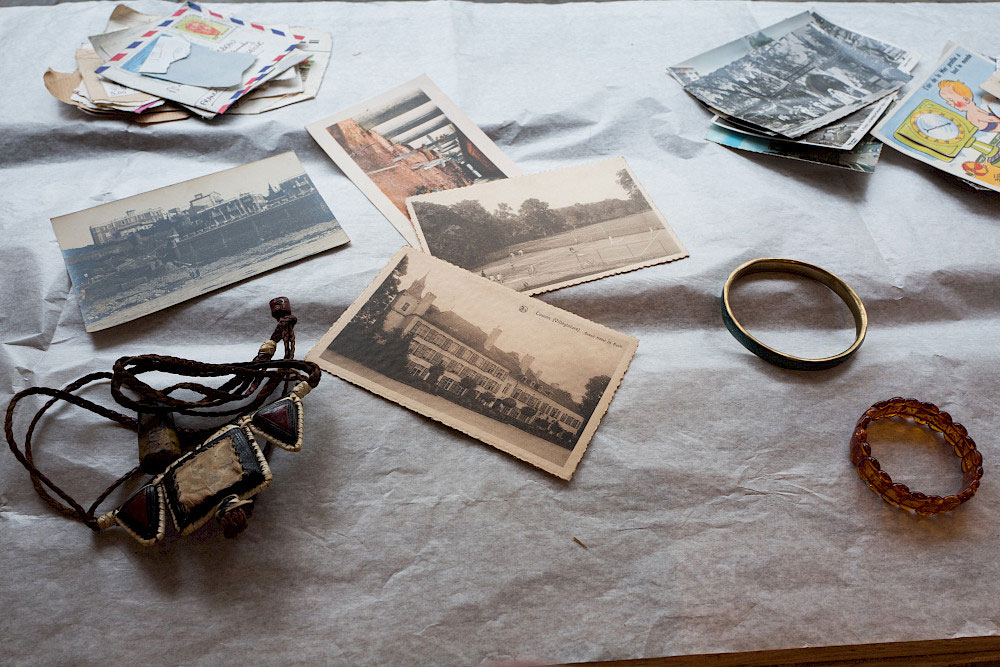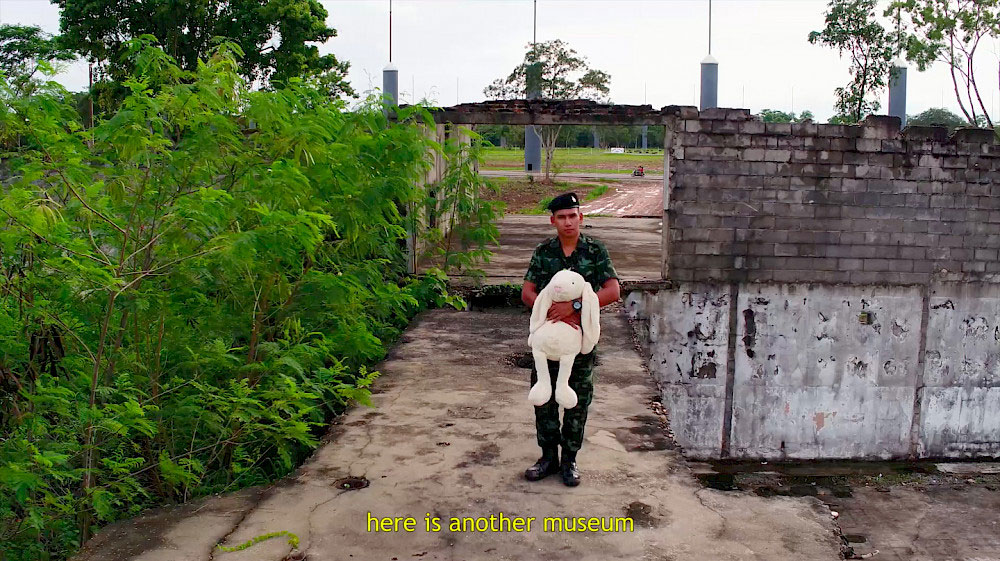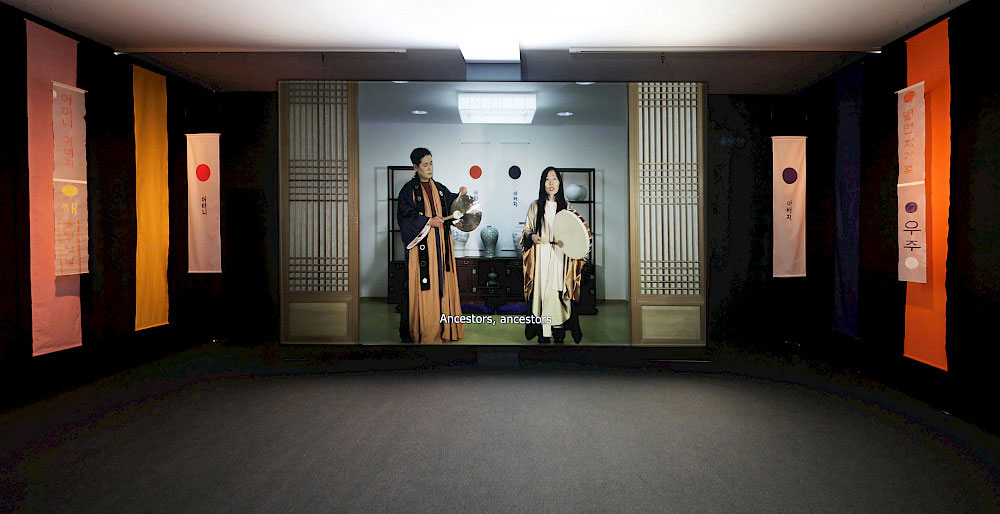ART-PRESENTATION: Kunstenfestivaldesarts 2021
 Theatre, dance, performance, film and visual arts: the Kunstenfestivaldesarts a vibrant celebration of today’s new artistic work. Every year in the month of May, in theatres and arts centres and in public and original spaces. In Brussels, a city whose diversity inspires how we see the world and how we live in it.
Theatre, dance, performance, film and visual arts: the Kunstenfestivaldesarts a vibrant celebration of today’s new artistic work. Every year in the month of May, in theatres and arts centres and in public and original spaces. In Brussels, a city whose diversity inspires how we see the world and how we live in it.
By Efi Michalarou
Photo: Kunstenfestivaldesarts Archive

During the month of May, Kunstenfestivaldesarts 2021 presents a series of projects in Brussels, in installation and outdoor formats, adapted to health restrictions. In “Zone de Troc”, Pélagie Gbaguidi opens up a participative space in which visitors can deposit or take away objects, stories, drawings, secrets and letters. “Zone de Troc” (a barter-zone –) dreams up alternative exchanges that can take place during the economic crisis that is sure to follow the Covid-19 pandemic. She also revives the possibility of interactions with others, particularly strangers, that the pandemic has weakened or restructured to adhere to a principle of necessary isolation. The venue, a former hairdresser’s, becomes an incubator for regenerating an ecology of relationships and a new type of economy, using strategies to overturn the established order. Over a period of three weeks, a hairdresser, musicians and a tarot card reader will take turns meeting the public, and once a week an outdoor market-without-objects will also be held. For many years now, Pélagie Gbaguidi has created forms of productions in her artistic practice that contribute to metamorphoses in society. “Zone de Troc” is part of a reflection on the exchange o
Walid Raad in his exhibition “We can make rain but no one came to ask” compiles a catalogue of natural elements, in which paintings, installations and his storytelling disclose a series of strange events in the Middle East’s recent past. We might find a reference to a woman who was passionate about botany and who worked for Lebanese intelligence during the Lebanese Civil War, creating codenames for foreign heads of state (Saddam Hussein or Ronald Reagan) using the names of flowers. Or again, a series of drawings of locusts that appear on the back wall of a bookshelf in Brussels, a remnant of the great invasion of locusts in 1915 in Palestine, Lebanon and Syria that decimated local agriculture and contributed to the defeat of the Ottoman Empire. Walid Raad conceived this new work starting from the spaces of the Maison des Arts, its floral details in the wallpaper and its magnificent garden, and from Schaerbeek as one of Brussels’ ancient agricultural areas. The exhibition can be visited throughout the month and is accompanied by a walkthrough and an audio guide in which Walid Raad takes spectators on this imaginative journey into nature: a space that exists between the fictions of the past and those of the future.
In 2018, a youth soccer team became trapped in a cave in Chiang Rai, one of the most mediatised events in Thailand’s recent history. Some of the boys did not yet have Thai nationality, and the country tried to grant it to them in time, to create the narrative of the team as national heroes. In “No History in a Room Filled with People with Funny Names 5”, Korakrit Arunanondchai and Alex Gvojic interpret this episode through ghost cinema, a tradition of holding screenings without human spectators, and reserved for spirits only. Its origins date back to when American soldiers were stationed in Thailand during the Vietnam War; they would project light onto the trees across the border to confuse the opponents, and the locals would attribute this to ghosts. In his non-linear style of storytelling, Arunanondchai and Gvojic create an incredibly visionary work: an investigation into nationalism, beliefs, and the right of asylum. Presented in the space of the Brigittines chapel, “No History in a Room Filled with People with Funny Names 5″ becomes a triptych of expanded cinema, resonating with the interior architecture. It is a ghostly journey accompanied by green laser lights, hovering somewhere between transcendence, war operations, and the infrared vision of speleological missions.
Practices of shamanism, the violent eradication of shamanistic cultures by missionaries, healing, ancestry, coloniality, and criminality of contemporary intercountry and transracial adoption are the subjects of “Four Months, Four Million Light Years” by Sara Sejin Chang (Sara van der Heide). Shamanic poems, songs and visions invoke the ancestors for support. The project is an homage to those who have been cut off from their mothers, fathers, family, ancestors, land, culture, and spirits. The colonial print “Een Schaman ofte Duyvel-Priester” [Shaman or Devil’s Priest from the Tungus, 1692] by Nicolaes Witsen acts as a pivotal point for a spiritual journey through time. The seventeenth-century print is the first Western depiction of a shaman. It marks the beginning of a long history of racialized and infantilizing descriptions of Asian people by white Europeans. The four months of the title refer to the time it took to complete the paperwork for a Korean child in the lucrative transracial adoption industry that started to flourish after the Korean War, an industry that continues to live off the same colonial imagery from 300 years ago.
For the first time the program of Kunstenfestivaldesarts can be experienced not only in Brussels, but is composed of a series of newly commissioned projects, accessible from afar: a new musical composition and visual concert by Chassol; “The Wake” by The Living and the Dead Ensemble; “Pieces of a Woman” by Kornél Mundruczó and Kata Weber; “Violence” by Léa Drouet; Mariano Pensotti; Sorour Darabi; and the world premiere of “The Interrogation” by Edouard Louis and Milo Rau, performed live several nights from Brussels. The festival also has an online public programme, Stream of Thoughts, accessible on the festival’s website and inviting, among others, Saidiya Hartman with Okwui Okpokwasili; Fania Noël-Thomassaint; Cecilia Vicuña with Sonali Gupta; Chassol; Amanda Piña with Rolando Vasquez. A second part of the festival takes place in July in theatres with new performances by, among others, Faye Driscoll, Wichaya Artamat, Marcela Levi and Lucia Russo, Nacera Belaza, and a new performance by Lina Lapelytė conceived for an outdoor swimming pool.
With: Pélagie Gbaguidi, Walid Raad, Sarah Vanhee (bodies of knowledge), Korakrit Arunanondchai, Chassol, Kornél Mundruczó and Kata Weber, Nadia Beugré, Akira Takayama, Léa Drouet, Mariano Pensotti, Sara Sejin Chan (Sara van der Heide), Hamza Halloubi, Radouan Mriziga, Amanda Piña, Sorour Darabi, Lia Rodrigues, The Living and the Dead Ensemble, Romeo Castellucci, Edaourd Louis and Milo Rau, Joris Lacoste and ICTUS, Ayaka Nakama, Adéline Rosenstein, The School of Contamination (Dina Mimi, Salvatore Calcagno, Roland Gunst, Nikima Jagudajev), Faye Driscoll, Jaha Koo, Wichaya Artamat, Marcela Levi and Lucia Russo, Nacera Belaza, Marcus Lindeen, Lina Lapelytė, and Stream of Though, a public program with, a.o. Saidiya Hartman, Okwui Okpokwasili, Fania Noël-Thomassaint, Cecilia Vicuña, Sonali Gupta.
Photo: Pélagie Gbaguidi, Zone de Troc II, performative installation, 2021, © Pélagie Gbaguidi, Courtesy the artist and Kunstenfestivaldesarts
Info: Kunstenfestivaldesarts, Quai du Commerce 18, Brussels, Belgium, Duration: 7/5-8/7/2021, Days & Hours: (see here), www.kfda.be






Fiilm installation credits : Artist, director, watercolors, camera, editing, text, drumming, voice over, sound: Sara Sejin Chang (Sara van der Heide) | Composing songs, singing: Yan Vandenbroucke | Korean percussion: Leslie Maes | Korean chanting: Jungrak Choi | Sound: Céline Gillain | Costumes: Lila John | Color grading: Paul Millot | Clinical psychologist: Miranda Ntirandekura Aerts | Special thanks to the Darghad shamans: Aminaa, Kyugagaa, Eden-Ochi, Umbaan, Saintsetseg and Korean mudang Jen Bosalnim | Supported by: The Mondriaan Foundation, GRIMONSTER residence, Korean Cultural Center of Brussels, Embassy of the Netherlands | Coproduction: Kunstenfestivaldesarts, ARGOS, 11th Berlin Biennale
Performance credits : Live narrating and percussion: Sara Sejin Chang (Sara van der Heide)




